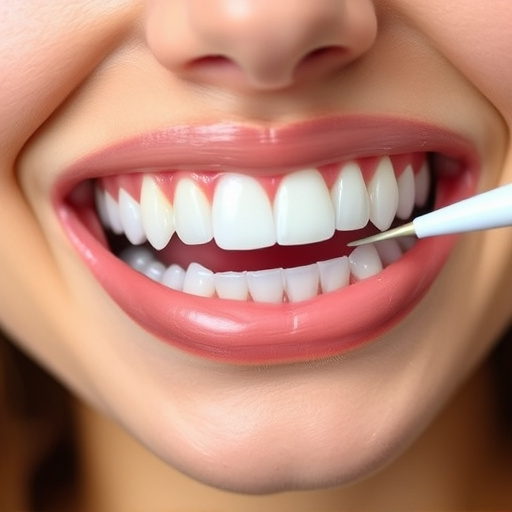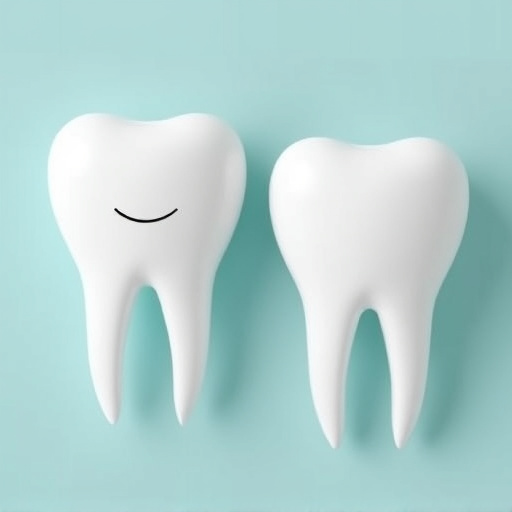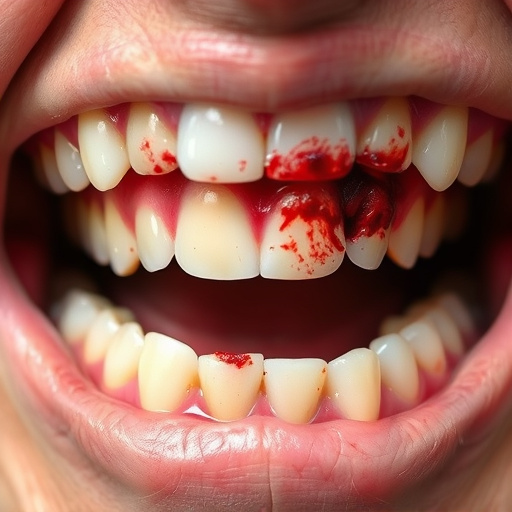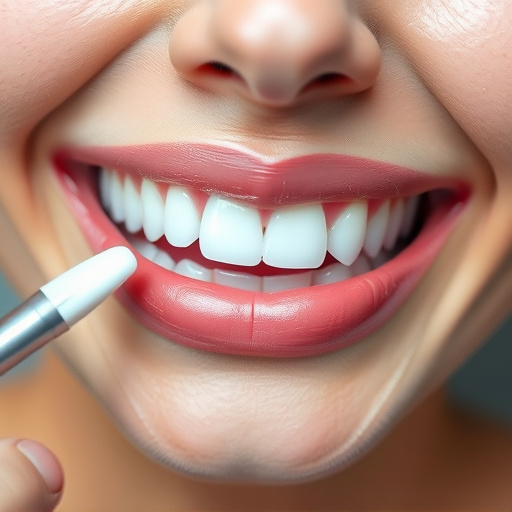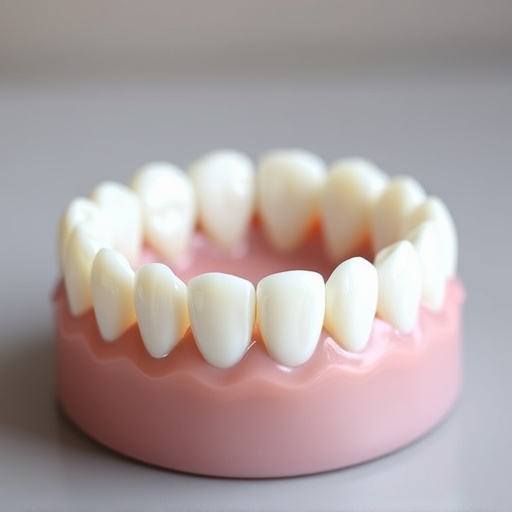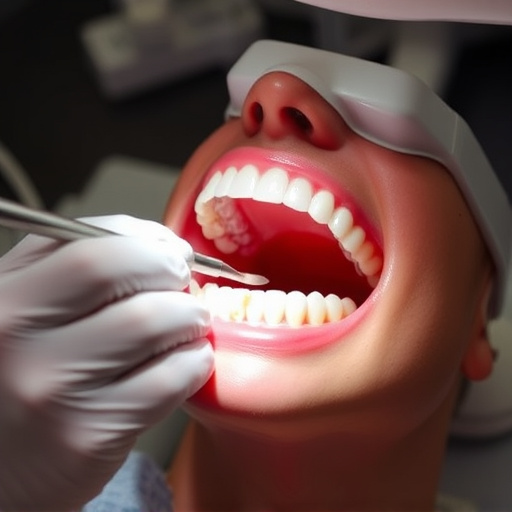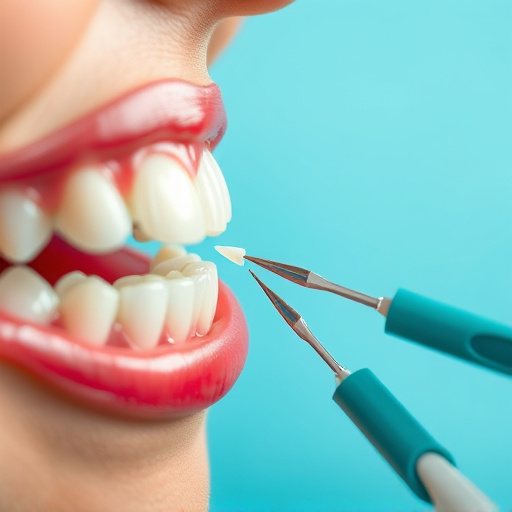Tooth sensitivity treatment addresses causes like enamel erosion, gum issues, and triggers such as acidic foods and brushing hard. Prevention includes proper oral hygiene, limiting acid exposure, and using fluoridated products. Treatment options range from deep cleaning to surgical procedures for severe cases, focusing on addressing exposed dentin and enhancing oral health.
Tooth sensitivity is a common dental concern, causing discomfort and impacting daily activities. This article delves into comprehensive tooth sensitivity treatment options, focusing on enamel and gum health. We explore the root causes, from enamel erosion to gum issues, offering practical remedies and preventive measures. By understanding these factors, you can navigate towards lasting sensitive teeth relief. Discover tailored gum care routines and innovative treatments aimed at addressing the core problems, providing a holistic approach to tooth sensitivity management.
- Understanding Tooth Sensitivity Causes and Triggers
- Exploring Enamel Erosion Remedies and Prevention
- Targeted Gum Care for Sensitive Teeth Relief
Understanding Tooth Sensitivity Causes and Triggers
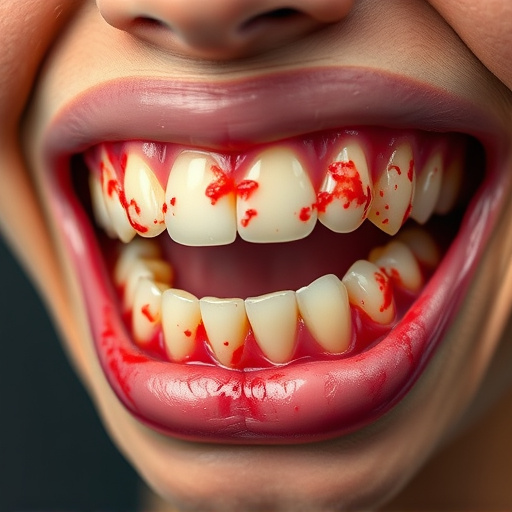
Tooth sensitivity is a common dental concern that can significantly impact one’s quality of life. Understanding its causes and triggers is the first step in effective tooth sensitivity treatment. The enamel, the hard outer layer protecting our teeth, plays a crucial role. Erosion or thinning of this protective barrier exposes the underlying dentin, leading to sensitivity. This can be caused by various factors such as brushing too hard, eating acidic foods, or even dry mouth.
Additionally, gum issues like gingivitis or periodontitis can also contribute to tooth sensitivity. Inflamed gums can recede, exposing the roots of the teeth which are more susceptible to sensitivity. Certain behaviors like grinding teeth (bruxism) or clenching can exacerbate these issues. Even factors like certain dental procedures or cosmetic treatments like teeth whitening can trigger sensitivity. Identifying and addressing these triggers is a vital aspect of tooth sensitivity treatment, ensuring long-lasting relief for patients, especially in the context of children’s dentistry, clear aligners, and even considering options like dental implants.
Exploring Enamel Erosion Remedies and Prevention
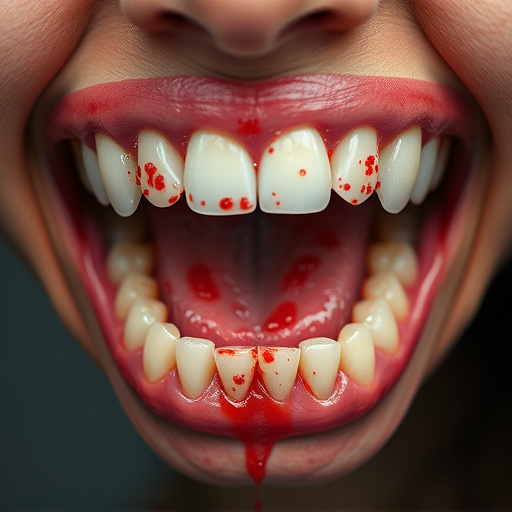
Tooth sensitivity treatment often begins with exploring and addressing the root causes of enamel erosion, a common issue contributing to dental discomfort. Enamel, the protective outer layer of teeth, can erode over time due to various factors like acidic foods and drinks, aggressive brushing, or exposure to acid reflux. This wear and tear leaves teeth vulnerable to sensitivity and pain when consuming hot or cold substances.
Prevention is key in managing enamel erosion. Family dentistry, general dentistry, and even cosmetic dentistry professionals recommend regular oral hygiene practices such as using a soft-bristled toothbrush and fluoride toothpaste. Additionally, limiting exposure to acidic foods and beverages can significantly reduce the risk of enamel erosion. Rinsing with a fluoridated mouthwash is another effective strategy to strengthen tooth enamel and provide an extra layer of protection against sensitivity issues.
Targeted Gum Care for Sensitive Teeth Relief
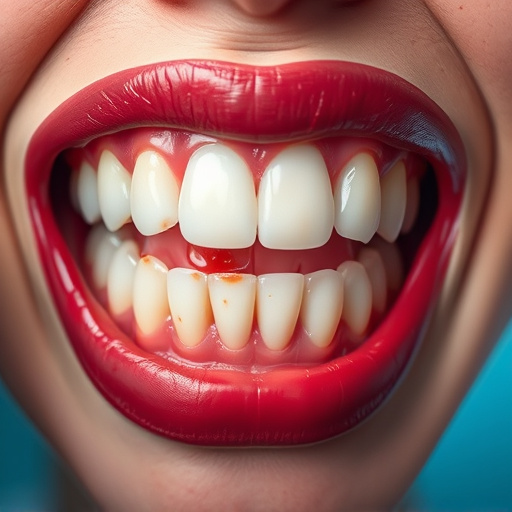
Sensitive teeth often stem from exposed dentin due to receding gums or enamel erosion. One effective tooth sensitivity treatment targets these gum and enamel issues directly. Regular dental check-ups can help identify early signs of gum disease, allowing for prompt intervention with deep cleaning procedures. Scaling and root planing remove plaque buildup and tartar along the gumline, reducing inflammation and stopping gum recession.
For more severe cases or to address cosmetic concerns, children’s dentistry may offer solutions like gum graft surgery to cover exposed roots or cosmetic fillings to restore damaged tooth enamel. While tooth extractions are sometimes necessary when gums are severely compromised, preventing these issues through meticulous oral hygiene and regular dental care is the best approach for long-lasting sensitive teeth relief.
Tooth sensitivity treatment involves addressing both enamel and gum issues, as highlighted in this article. By understanding the causes, exploring remedies for enamel erosion, and implementing targeted gum care, individuals can effectively manage and alleviate tooth sensitivity. These strategies focus on preventing further damage while providing much-needed relief, ultimately enhancing oral health and quality of life. When it comes to sensitive teeth, a comprehensive approach is key.






